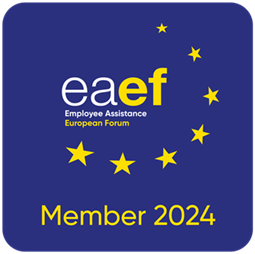Employee trust is the cornerstone of a successful Employee Assistance Program (EAP). When employees know their conversations are confidential, they’re more likely to seek help, leading to a healthier and more productive workforce. Here’s how modern EAP software plays a vital role in protecting employee confidentiality:
Building Trust Through Technology
EAP software offers several features that ensure employee privacy and confidentiality:
- Secure Logins: Multi-factor authentication and strong encryption protocols safeguard user accounts and prevent unauthorized access.
- Anonymous Access: Features like anonymous chat or online screening tools allow employees to seek initial support without revealing their identity.
- Data Encryption: All communication and data within the software are encrypted, ensuring only authorized personnel can access them.
- Audit Trails: Detailed logs track user activity and access, providing transparency and accountability in data handling.
Beyond Technology: A Culture of Confidentiality
Software is just one piece of the puzzle. Strong confidentiality practices are crucial:
- Clear Communication: Clearly explain confidentiality policies to employees, outlining what information is collected, stored, and shared.
- EAP Professional Training: Ensure EAP professionals are trained on ethical data handling and maintaining client confidentiality.
- Limited Data Sharing: Only share necessary and de-identified data for program evaluation or legal purposes, with employee consent.
The Importance of Transparency
Confidentiality doesn’t mean secrecy. Employees need to understand how their information is used:
- Aggregate Reporting: Utilize anonymized data for program reporting and trend analysis, not individual user data.
- Data Retention Policies: Establish clear policies for data storage and deletion, respecting employee privacy over time.
- Employee Feedback: Regularly seek feedback from employees on their perception of confidentiality within the EAP program.
The Benefits of a Safe Space
Protecting confidentiality fosters a safe space for employees to seek help, leading to several benefits:
- Increased EAP Utilization: Employees feel comfortable using the EAP without fear of reprisal or information leaks.
- Early Intervention: Employees are more likely to address issues early on, leading to faster resolution and reduced impact.
- Improved Employee Well-being: A culture of trust contributes to a healthier and more productive work environment.
Investing in Confidentiality
By prioritizing employee confidentiality through technology and strong practices, EAP programs build trust and empower employees to seek the support they need. This translates to a healthier workforce and a stronger organization overall.
Looking to strengthen your EAP’s commitment to confidentiality? Explore software features that prioritize data security and review your existing program practices. By creating a truly safe space, you can unlock the full potential of your EAP and support the well-being of your employees.



